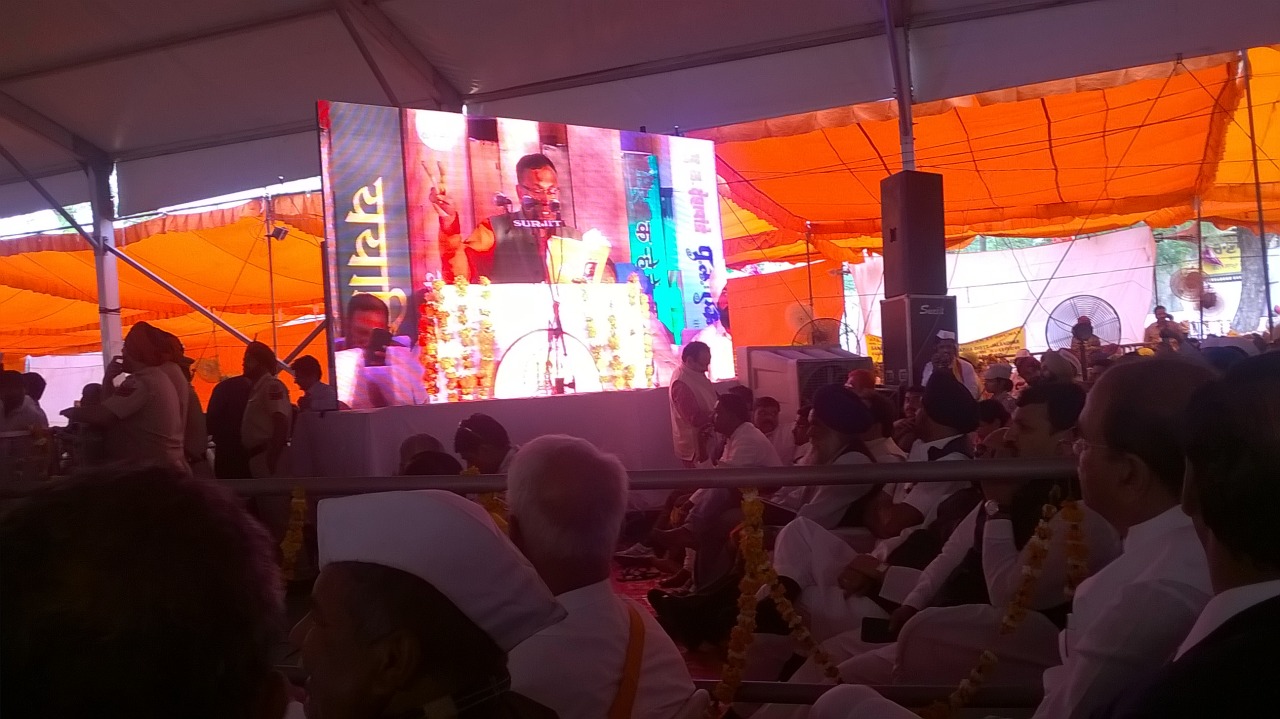![Raj_thumb%25255B2%25255D[1] Raj_thumb%25255B2%25255D[1]](https://blogger.googleusercontent.com/img/b/R29vZ2xl/AVvXsEjK9dqjtAodi4MuJhuFhquWCoXR2tCY54XPj_2g13LICVbcY_uEv55qnoZpUjPSeT-clCp1sP1vRU8nTEsQ0q2OiMrNbpx7IRQPLM7Z43bituH1SCzf01r55CZl0zoeT2EJjA/?imgmax=800)
However, even today, when Thackeray's bête noir Shiv Sena is accommodated itself in the roles of partner in power as also the player in politics and state's politics fragmented beyond repair, Raj rules the public mind.
The fact came to fore on Tuesday, June 10, when Raj attended a function to confer Sant Namdev National Award to Prakash Singh Badal, Chief Minister of Punjab. The award was given by Devendra Fadnavis, Chief Minister of Maharashtra and the award was given by Sarhad, an NGO based in Pune. Raj was the Chief Guest at the function. When his name was announced, there was a loud cheer from the audience - a mixed bag of Maharashtrians and Sikh citizens.
He started his speech by addressing 'all Marathi people' and in the same breath added that he deemed Sikhs as Marathi people. There was a loud clapping which was hardly surprising.
Then true to his fame for wit and punches, he quipped that Badal (cloud) had come in Maharashtra on the eve of monsoon so that there may be rain. Every one in the auditorium applauded the nice words of play and novel way of welcome. Even Badal seemed to be curious ad he was seen asking Fadnavis a translation of the humor.
Taking a cue from Sarhad's Sanjay Nahar, Raj then went on to say that Sant Namdev bound Maharashtra and Punjab's cultures in one thread and only a tailor could do this. This was an hitherto unnoticed and unused observation which pointed to the Sant Namdev's caste (Shimpi). Had the public not responded with applause and appreciation, they would be blamed. But the praise was well received and hall resonated with cheers. Even the Sikhs who knew Marathi put their seal of appreciation on the quirky description of the great work this 13th century saint did. Clearly he stole the show. Even Fadnavis borrowed his words to express his feelings.
Raj, like his cousin Uddhav and uncle Bal Thackeray, is adept at capturing the mood of the masses and regaling them to his advantage. He may have lost elections but he has not lost his charms and talent. That is the promise for the time for his partymen.


 Think of it. 66 studio centers spread all over the country, out of these 23 centres are either already digitalised or being digitalized, 39 studio centers, 91 percent area covered all over India. Still Doordarshan is often called poordarshan because of its style of functionning. It seems it likes to work as just another government organ.
Think of it. 66 studio centers spread all over the country, out of these 23 centres are either already digitalised or being digitalized, 39 studio centers, 91 percent area covered all over India. Still Doordarshan is often called poordarshan because of its style of functionning. It seems it likes to work as just another government organ. 







